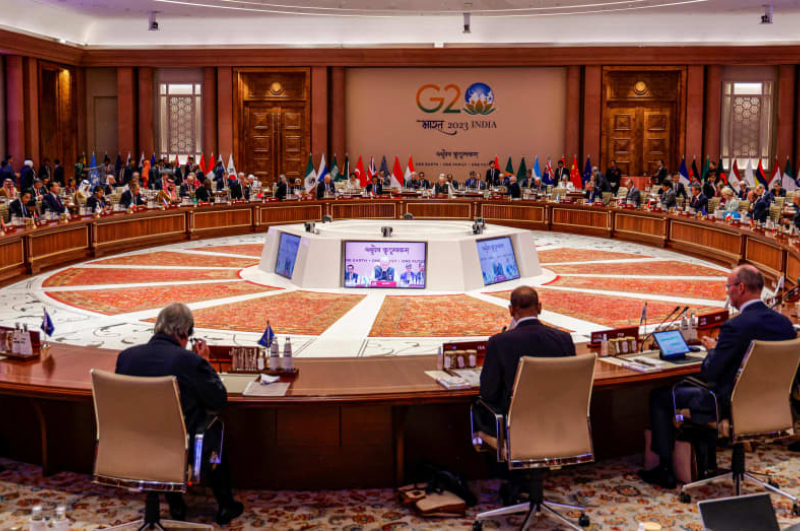

The Group of 20 (G20) top world economies added the African Union (AU) as a member at their annual summit last Saturday.
This momentous declaration was made by Indian Prime Minister Narendra Modi, marking a significant stride towards a more inclusive and equitable global economic landscape. Comprised of 19 nations and the European Union (EU), Africa had only been marginally represented within the G20 through South Africa’s seat and AU permanent guest ship. This admission is the first change since the conception of the group in 1999 as part of the international response to the Asian financial crisis for finance ministers and central bank governors to take up issues of global economic significance.
Following the global financial crisis in 2007, the G20 was elevated to the level of heads of states. Before admission of the AU as permanent member, G20 initially included 19 countries including Argentina, Australia, Brazil, Canada, China, France, Germany, India, Indonesia, Italy, Japan, Korea, Mexico, Russia, Saudi Arabia, South Africa, Türkey, United Kingdom and United States as well as the EU. Spain holds a permanent guest seat. The G20 member countries collectively represent approximately 85% of the global GDP, over 75% of global trade, and around two-thirds of the world’s population.
India, along with other countries, have been pushing for more African involvement in international matters. Further, support for the AU’s inclusion in the G20 was already voiced by countries like Russia and the United States at the Bali Summit. Officially launched in 2002, the AU is a grouping of 55 African nations representing about 1.4 billion people and around 10% of the world’s economy. The AU members collectively possess a GDP of approximately US$2.26 trillion. This would position the AU as the 11th largest economy in the world. The move would give the 55-member AU, which is currently classified as an “invited international organization,” the same status as the EU. This means Africa's premiere regional bloc would now get representation in the high table of global diplomacy.
Inclusion of the AU in the G20 is expected to give a boost to the Global South in international economic issues. The inclusion of the AU strengthens the G20’s role as a platform for addressing global economic issues comprehensively. The AU has been advocating for reforms to a global financial system – including the World Bank and other entities – that forces African countries to pay more than others to borrow money, deepening their debt. Additionally, with full G20 membership, the AU can represent a continent that’s home to the world’s largest free trade area. It’s also enormously rich in the resources the world needs to combat climate change, which Africa contributes to the least but is affected by the most. Additionally, the G20’s outreach to the AU may serve as a strategic move to counterbalance China’s expanding influence in the African continent. Moreover, the global race to secure rare minerals essential for the future of energy underscores the growing importance of the African continent on the world stage. The African continent has 60% of the world’s renewable energy assets and more than 30% of the minerals key to renewable and low-carbon technologies. Congo alone has almost half of the world’s cobalt, a metal essential for lithium-ion batteries, according to a United Nations report on Africa’s economic development released last month.
Related Articles
Select Payment Method
Pay by bank transfer
If you wish to make a donation by direct bank transfer please contact Fr Paul Hamill SJ treasurer@jesuits.africa. Fr Paul will get in touch with you about the best method of transfer for you and share account details with you. Donations can be one-off gifts or of any frequency; for example, you might wish to become a regular monthly donor of small amounts; that sort of reliable income can allow for very welcome forward planning in the development of the Society’s works in Africa and Madagascar.
Often it is easier to send a donation to an office within your own country and Fr Paul can advise on how that might be done. In some countries this kind of giving can also be recognised for tax relief and the necessary receipts will be issued.

